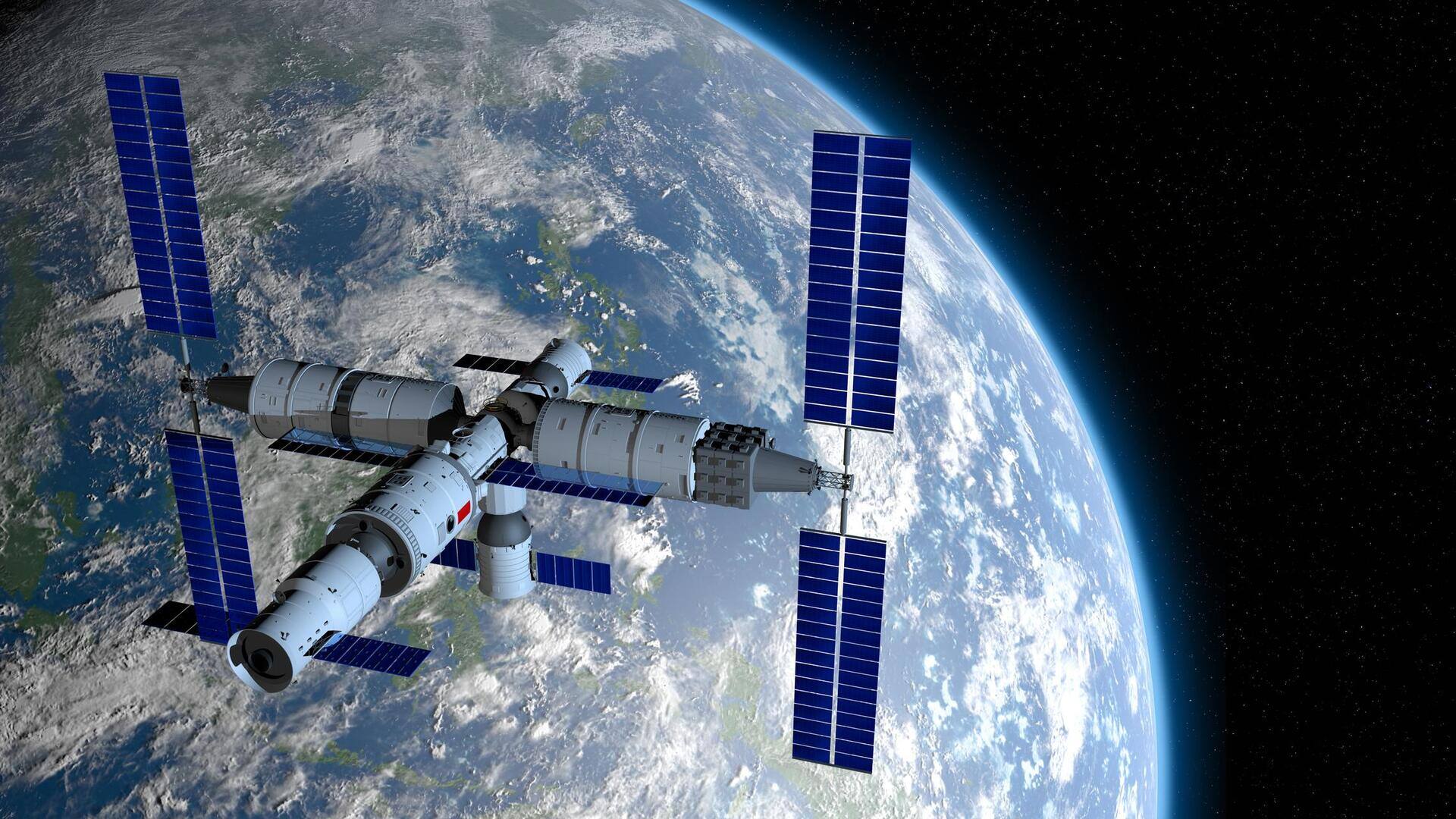
China launches its youngest-ever crew to Tiangong space station
What's the story
China's youngest space crew to date embarked on a mission to the Tiangong space station aboard the Shenzhou 17 spacecraft today. The mission took off aboard a Long March 2F rocket from the Jiuquan Satellite Launch Center located in the Gobi Desert at about 8:45am IST. The China National Space Administration called the launch "a complete success" following the spacecraft's separation from the Long March 2F rocket, which occurred 10 minutes into the flight.
Details
The crew will stay in orbit for six months
The Shenzhou 17 crew, consisting of mission commander Tang Hongbo (48), a Shenzhou 12 veteran, and former fighter pilots Tang Shengjie (34) and Jiang Xinlin (35), represents the youngest team to visit Tiangong. At a pre-launch press conference, Hongbo said, "The space station is another home for us on the journey from Earth to the vast universe." The trio is set to dock with Tiangong approximately 6.5 hours after launch, commencing their six-month stay in orbit.
Activities
Crew to perform the first maintenance spacewalk outside Tiangong
During their stay at Tiangong, the Shenzhou 17 astronauts will carry out scientific experiments and maintenance activities, and engage in science outreach activities. They will also perform the first extravehicular experimental maintenance spacewalk outside of Tiangong, reports Space.com. Currently onboard the space station are Shenzhou 16 astronauts—Jing Haipeng, Zhu Yangzhu, and Gui Haichao—who have been there since late May. They will transfer control of the space station to the Shenzhou 17 crew before returning to Earth on October 31.
Insights
Shenzhou 17 is China's 12th overall astronaut mission
Shenzhou 17 marks the sixth crewed mission to Tiangong and the 12th overall astronaut mission for China. Chinese astronauts Shengjie and Xinlin, both making their first spaceflights, joined the country's third astronaut cohort in September 2020. According to Reuters, China has begun selecting its fourth batch of astronauts, seeking candidates with PhDs in biology, physics, chemistry, biomedical engineering, or astronomy. Foreign astronauts can also participate but Chinese language skills are a key criterion for selection.
Tiangong
China plans to keep Tiangong occupied for a decade
China finished its three-module Tiangong in late 2022 and plans to keep the space station permanently occupied for at least 10 years. The nation's human spaceflight agency is working on a multipurpose extension module to expand Tiangong, transforming its shape from a "T" to an "X," allowing for additional modules to be added to the station. For reference, as of now, Tiangong is 20% as big as the International Space Station (ISS).